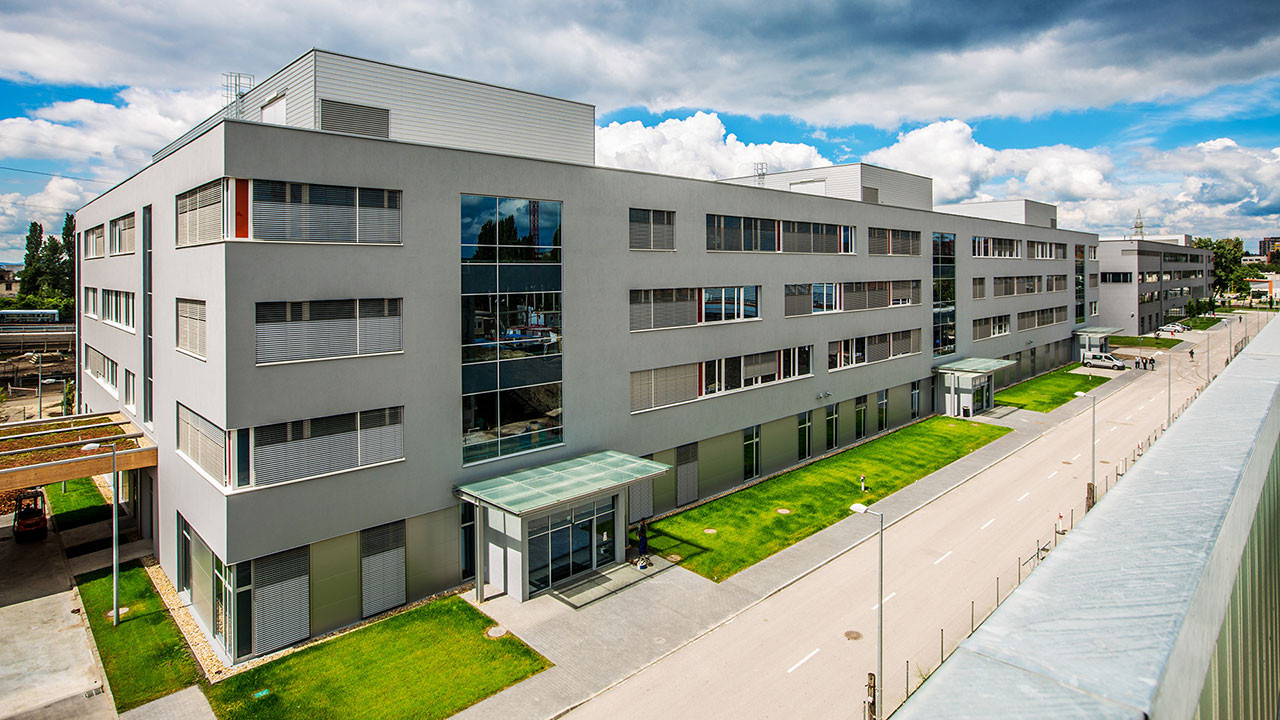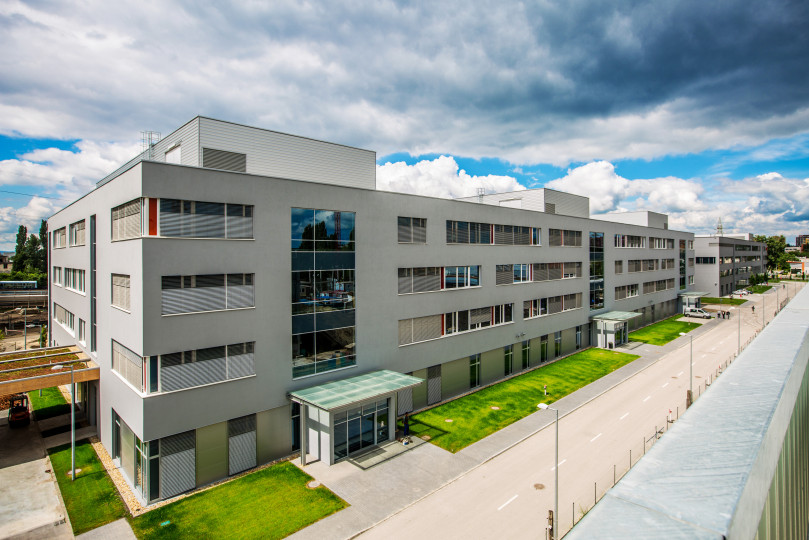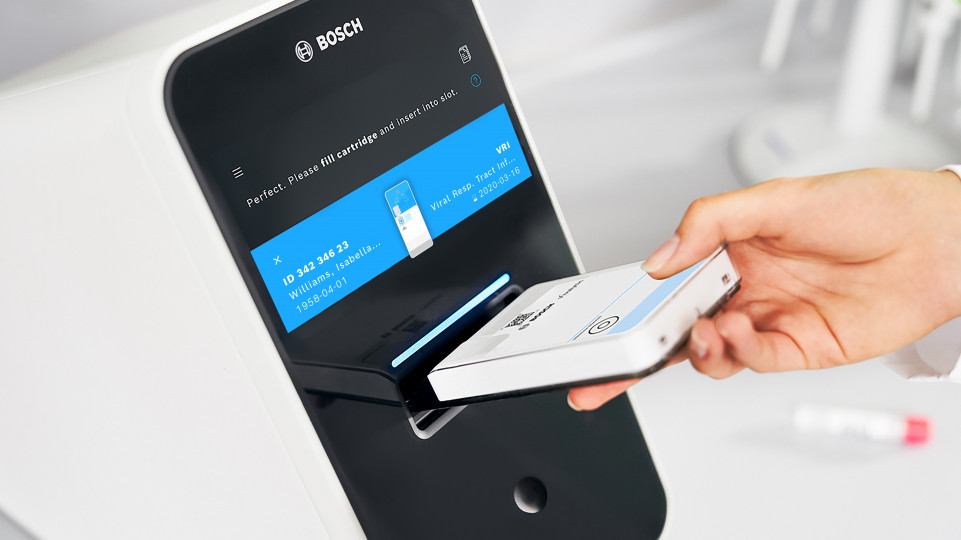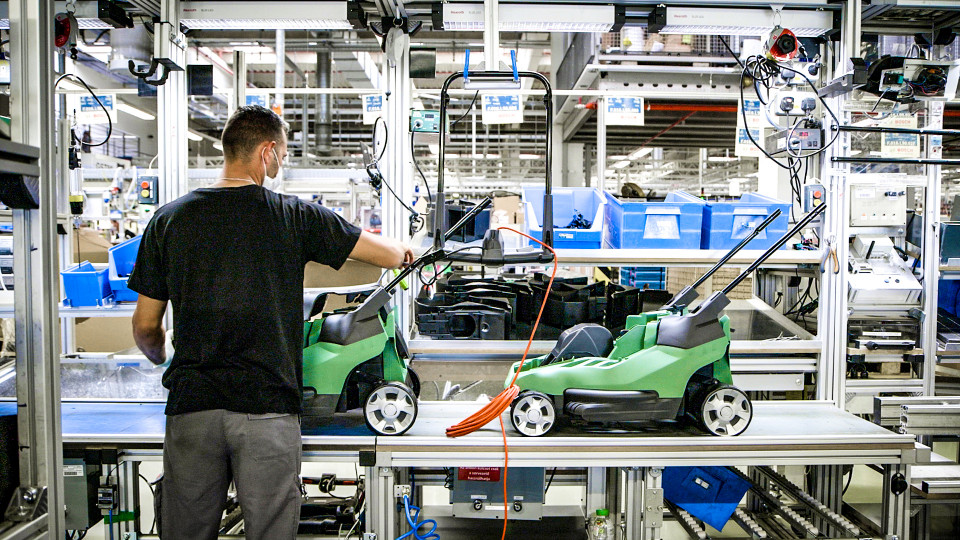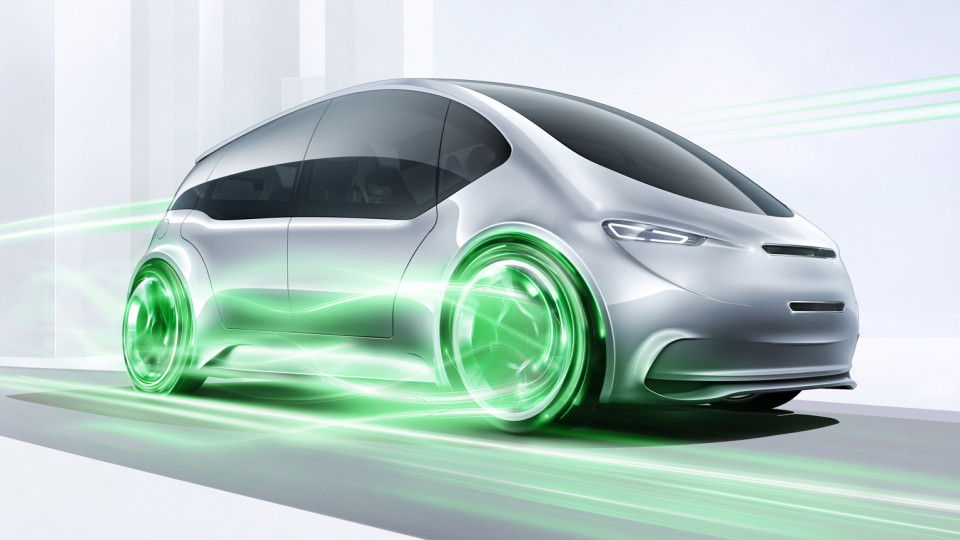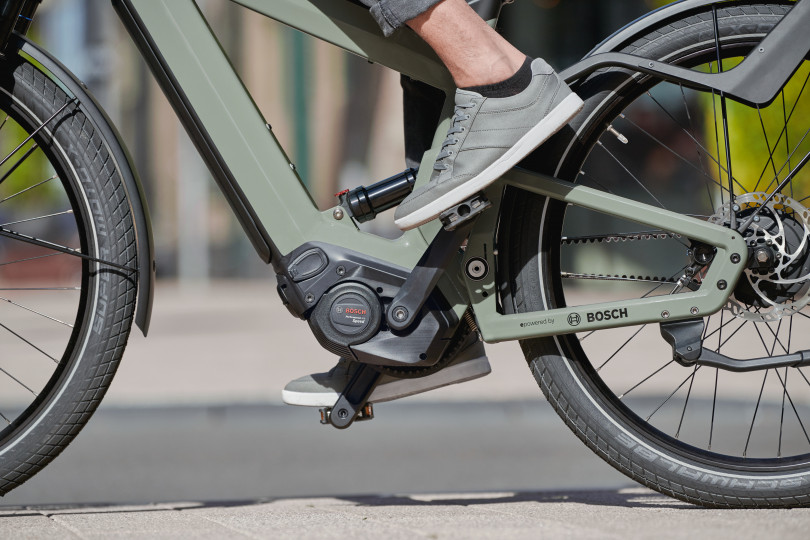Budapest – Bosch, a leading global supplier technology and services, quickly responded to the challenges posed by the coronavirus pandemic and international market trends in 2020. Due to its diverse activities in the country and its wide product portfolio, the company’s performance has remained steady in Hungary. Total net sales of Bosch in Hungary, including sales of non-consolidated companies and internal deliveries to affiliated companies, amounted to 1,497 billion forints (4,262 million euros) in 2020, thus increasing by 2 percent compared to the previous year. Consolidated sales to third parties in Hungary stood at 238 billion forints (679 million euros) — which represents an 8 percent decrease from the year before in forints. Even amid the challenges, the Bosch Group in Hungary continued its investment projects, active research and development activities, and production in fields that shape the future, such as electromobility, autonomous vehicles, artificial intelligence and Industry 4.0. “Despite the difficulties, we at Bosch Hungary managed to balance the protection of our fellow associates’ health, the preservation of jobs, and quickly changing customer demand”, said Daniel Korioth, representative of the Bosch Group in Hungary and Adria Region.
Bosch in Hungary is optimistic about its prospects for 2021, but expects to face new challenges, partly because of a high market demand for semiconductors and the effects of the respective bottlenecks, which are difficult to assess. “We provide future-proof answers to the challenges of the present. We will carry on with our previous investment projects and technological developments, as these are the key to our stability. The production, R&D activities and engineering expertise we have in Hungary continue to be of strategic importance for Bosch”, said Dr. István Szászi currently head of Engineering Center Budapest. Dr. Szászi is going to take over the position representative of the Bosch Group in Hungary and Adria Region as of July 1, 2021.
Several Hungarian investment projects of Bosch slowed down due to the coronavirus pandemic, but the company was able to continue all planned investments, which will only be completed later. The total investment in 2020 was 73 billion forints (207 million euros).
As of December 31, 2020 Bosch employs more than 15,500 associates in Hungary. That is around 250 more people than at the end of the previous year, partly because of a significant increase in orders in the second half of 2020.
Unique and quick responses to global challenges
Bosch in Hungary quickly responded to challenges posed by the pandemic: for testing the associates entering its sites, it also used a diagnostic device developed in-house. The Bosch Vivalytic test device can detect the virus causing COVID-19 disease in less than 30 minutes, and can also identify the pathogens of nine additional respiratory diseases. Testing with the device substantially contributed to the stability of the company’s production capacities despite the pandemic. Bosch in Hungary also has its own health facility, the Bosch Medical Center, which plays an important role in preserving the employees’ health during the pandemic and provides credible information.
The economic downturn in the 2nd quarter of 2020 affected the Hungarian sites of Bosch too. However, the second half of the year saw an unexpectedly large increase in the volume of orders — record high orders at some sites. The Hungarian sites of the company responded quickly to the sudden high demand, and are in continuous and close contact with suppliers and customers to be able to fulfil orders.
New investment and products in Hungary
Hungary is a strategically important location for the Bosch Group where significant investment is being implemented, and innovation is outstanding even by global standards. The company reinforced its presence in Hungary by yet another new investment project this April – the Bosch’s regional Shared Services Centre inaugurated in Vecsés provides HR administration for employees in five countries, simplifying the task through innovative digitalised solutions.
Several of the company’s sites in Hungary are set to expand their production capacity and manufacture new products in the near future.
In Miskolc, power tool manufacturer Robert Bosch Power Tool Kft. was expanded with a new, 20 thousand square metre production hall, where cordless power tools for DIY and gardening applications, their batteries, batteries for industrial applications and Bosch eBike batteries are manufactured. In 2021, additional production lines are planned to be commissioned. Also in Miskolc, Robert Bosch Energy and Body Systems Kft. — which engages in the production of mobility solutions components, as well as electric drives and motors — began producing the fourth generation (GEN4) of the electric drive system for the eBike in 2020, and is preparing to expand production for a number of its products in 2021, including electric bicycles, strollers and electric control systems. The company will move several eBike production lines to its refurbished production hall in 2021, along with the manufacturing of its components related to electric drives. In addition, Robert Bosch Automotive Steering Kft. began the construction of a new hall in Maklár in connection with a new line of steering system products intended for commercial vehicles.
Robert Bosch Elektronika Kft.’s compound in Hatvan is also gearing up to manufacture new components related to the domain of electromobility and automated driving. The plant in Hatvan — leading the way on a global scale in going digital and applying Industry 4.0 solutions, while also moving to the next level of efficiency improvement with paperless production and paperless material flow — plans to launch its local 5G network in 2021, thus opening the way to significant new milestones in digital transformation.
The Automotive Steering Column Kft. in Eger, which manufactures steering columns, expanded with a new production hall and warehouse base in 2020. As a result, the plant’s production volume and number of associates also doubled last year. The enlargement of Robert Bosch Kft.’s compound in Budapest is ongoing according to plan as a priority project for the Bosch Group in Hungary, and is slated to open its gates during the second quarter of 2022. The new campus will be a key site for research and development linked to electromobility and autonomous vehicles. Spaces and community functionality in the 90 thousand square metre building are being designed according to the New Way of Working project using experiences from the pandemic that have reshaped how people work.
To consolidate worldwide electronics remanufacturing operations of the Bosch Automotive Aftermarket division, the electronics remanufacturing workshop in Kecskemét will be discontinued by the end of the year 2021.
Innovation from Hungary shaping the future
The Bosch Group has continued to actively pursue its research and development operations in Hungary despite the year of crisis. Bosch spent a total of 86 billion forints (244 million euros) on R&D in Hungary in 2020.
Bosch’s research and development activity focuses on future-shaping technologies — such as electromobility, hydrogen, artificial intelligence — that not only generate new market opportunities, but also contribute to a drastic reduction of pollutant emissions to achieving climate-protection targets. In Hungary, the company’s concept on improving such technologies builds on active collaboration between industry and the academic domain, thus closely linking applied research at universities and industrial development. One of the important milestones of this was the establishment of the Industrial Department of Artificial Intelligence of Bosch and ELTE Faculty of Informatics in 2020, and the company also plans to establish further cooperation centers with Budapest University of Technology and Óbuda University. Various Bosch sites have fostered strategic partnerships with universities in Hungary for several years, working with more than 10 higher education institutions. In addition, they have also continuously supported the work of the AI Coalition in Hungary and its affiliated laboratories and research centers.
With all six of the company’s mobility solutions divisions represented uniquely in the world, Engineering Center Budapest is an increasingly important site for future-shaping Bosch development projects. The hub plays a prominent role in the field of autonomous vehicle development — Level 2 and Level 4 self-driving car technologies among them — with over a thousand engineers involved in Hungary. Engineering Center Budapest is working on multiple innovation projects linked to artificial intelligence and self-driving vehicles; among others, this is where Bosch’s new life-saving vehicle-interior monitoring system, built around cameras and AI, is being developed. The Center is also represented in an increasing number of technological fields related to electromobility, and now participates in the development of fuel-cell system components. In addition, the company is an active participant in the Hungarian hydrogen platform, thus shaping the Hungarian hydrogen strategy. The manufacturing of products linked to electromobility and autonomous vehicles is getting an ever more emphatic role at the Bosch site in Hatvan also, which is set to become the world’s largest automotive electronics manufacturing hub in coming years.
Next generation steering control shafts based on a proprietary patent are now in serial production at the company’s plant in Maklár. By allowing features like manual detection or lane keeping assist, this new technology is an important step on the path towards autonomous driving for commercial vehicles. Robert Bosch Power Tool Kft. in Miskolc is the Bosch Group's European battery pack production competence center of power tool business, and has enhanced its manufacturing technology by combining Big Data and Industry 4.0.
Robert Bosch Energy and Body Systems Kft. is expecting a significant uptick for 4th generation electric bicycles in 2021, and created a new testing hub and a development division for eBike electric drives last year. The company has taken key strides towards Industry 4.0 by going digital and automating its logistics workflows, and work at its warehouses is now facilitated with self-driving vehicles and automated goods receiving.
Bosch Group: Outlook for 2021 and strategic course
The Bosch Group achieved a positive result in 2020 despite the coronavirus pandemic and had a successful start to the first quarter of 2021. "Bosch came through the first year of the coronavirus pandemic well," said Dr. Volkmar Denner, the chairman of the board of management of Robert Bosch GmbH. However, the company expects another challenging year, primarily due to ongoing pandemic risks. To develop new business opportunities on the back of the profound technological and ecological changes currently occurring, Bosch is combining the internet of things (IoT) with artificial intelligence (AI) and is concentrating on electromobility. “We are one of the winners in the transition to electromobility, and we are significantly expanding our software business by tying in artificial intelligence,” said Denner.
Global efforts to combat climate change are boosting electrification and green hydrogen. Electrification offers Bosch new opportunities in several business areas, since it requires solutions not only for electric driving in cars, but also for electric heating in buildings. In powertrain technology, electromobility is establishing itself as Bosch’s core business. Fuel cells convert hydrogen into electricity, and Bosch is developing both stationary and mobile fuel-cell solutions. From 2021 to 2024, Bosch plans to invest one billion euros in fuel-cell technology.
Bosch is pressing ahead with its own climate action targets as planned, and has reached a major milestone with the climate-neutral status of its more than 400 locations worldwide in spring 2020. This has already been confirmed by independent testing. As a result, Bosch is the first global industrial company whose own locations no longer leave a carbon footprint – this also includes the sites in Hungary. Bosch also aims to reduce CO2 emissions along its entire value chain, from suppliers to customers, by 15 percent by 2030 from their 2018 level – a reduction of 67 million metric tons of carbon dioxide emissions.
Zita Hella Varga
Phone: +36 70 667-6374
Bosch has been present in Hungary since 1898 with its products. After its re-establishment as a regional trading company in 1991, Bosch has grown into one of Hungary’s largest foreign industrial employers with currently nine subsidiaries. In fiscal 2019 it had a total turnover of HUF 1465 billion and consolidated sales of the Bosch Group on the Hungarian market – not counting trade among its own companies – amounted to HUF 259 billion. The Bosch Group in Hungary employs more than 15,000 associates (as of December 31, 2019). In addition to its manufacturing, commercial and development business, Bosch has a network of sales and service operations that covers the entire country.
The Bosch Group is a leading global supplier of technology and services. It employs roughly 395,000 associates worldwide (as of December 31, 2020). The company generated sales of 71.5 billion euros in 2020. Its operations are divided into four business sectors: Mobility Solutions, Industrial Technology, Consumer Goods, and Energy and Building Technology. As a leading IoT provider, Bosch offers innovative solutions for smart homes, Industry 4.0, and connected mobility. Bosch is pursuing a vision of mobility that is sustainable, safe, and exciting. It uses its expertise in sensor technology, software, and services, as well as its own IoT cloud, to offer its customers connected, cross-domain solutions from a single source. The Bosch Group’s strategic objective is to facilitate connected living with products and solutions that either contain artificial intelligence (AI) or have been developed or manufactured with its help. Bosch improves quality of life worldwide with products and services that are innovative and spark enthusiasm. In short, Bosch creates technology that is “Invented for life.” The Bosch Group comprises Robert Bosch GmbH and its roughly 440 subsidiary and regional companies in some 60 countries. Including sales and service partners, Bosch’s global manufacturing, engineering, and sales network covers nearly every country in the world. With its more than 400 locations worldwide, the Bosch Group has been carbon neutral since the first quarter of 2020. The basis for the company’s future growth is its innovative strength. At 129 locations across the globe, Bosch employs some 73,000 associates in research and development, of which nearly 34,000 are software engineers.
Additional information is available online at www.bosch.com, www.iot.bosch.com, www.bosch-press.com, www.twitter.com/BoschPresse

